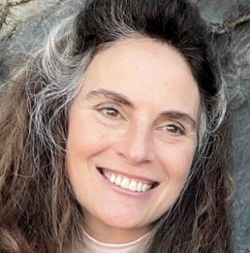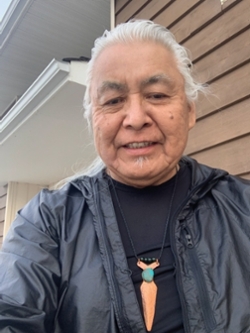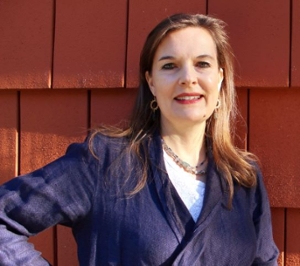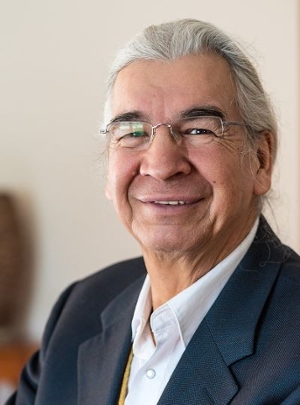2023 International Multispecies Methods Research Symposium: Intuitive Interspecies Communication

Thank you to all those who attended the 2023 Symposium!
This event took place virtually from May 8th-12th, 2023.
About the Symposium
Have you ever wondered what an animal1 or other more-than-human being was trying to tell you?
The Multispecies Methods Research Symposium is a unique event that brings together scholars, artists, Indigenous Knowledge Keepers, animal care providers, and animal communicators to share knowledge, ideas, and build a multi-sectoral (and multispecies) research community. Focusing on intuitive interspecies communication (IIC), our purpose is to share knowledge and build collaborations to support research that enhances our collective goal: to listen to the voices of animals and nature1 for the wellbeing of all.
Following on the success of last year's symposium, we invite you to join us for a 5-day interactive online event which includes many opportunities to network and learn on our enhanced online platform both before and after live events. As this practice is a relatively new area of dedicated academic study, symposium organizers want attendees to know that this forum will neither prove nor disprove that interspecies communication is occurring. Rather, this is an opportunity for interested individuals, practitioners and academics to engage in thoughtful and productive dialogue about IIC.
1Acknowledging the limitations of language and that humans are also animals and part of nature, we use the term 'animal' to refer to animals who are not human and 'nature' to represent all the many other-than-human beings with whom we are in relation.
Who is this for?
This event will be of interest to those who are seeking to more deeply understand intuitive interspecies communication, including researchers, animal care practitioners and caretakers, animal and interspecies communicators, conservation practitioners, artists and educators.
As we prepare this event, we acknowledge that University of Saskatchewan is on Treaty 6 Territory and the Homeland of the Métis. We pay our respect to the First Nations and Métis ancestors of this place and reaffirm our relationship with one another. We also thank the many plants, animals and other beings of the land, water and sky, for their support of this work.
Aims
- Scholarly exploration and deeper understanding of intuitive interspecies communication (IIC);
- Catalyze novel partnerships and grow an international network of IIC research;
- Develop new research questions, directions, teams, discussion groups across diverse areas of inquiry and disciplines.
Program Highlights
- Keynotes by researchers, thought leaders and practitioners, including Anna Breytenbach, Elder Copper Jack and Chara Armon
- Panel presentations on highly relevant topics of interest
- Sample interspecies consultation with a professional animal communicator
- Contributions from Indigenous Knowledge Keepers
- Small group dialogues based on participant papers, presentations and artwork submissions
- Enhanced networking opportunities with scholars, interspecies communicators, and other attendees
- Pre-and post-event viewing on an online platform with enhanced networking features, beginning April 8th
We will continue to update this page as details about the 2023 Symposium are finalized.
Presenters and Panels

Anna Breytenbach: Interspecies Communicator
Keynote Speaker
Anna Breytenbach is an internationally acclaimed professional interspecies communicator with 20 years’ experience. Native to South Africa and currently based in Europe, she mentors and consults globally. Anna’s consultation work is exclusively with wild places and beings, facilitating peaceful interventions globally via remote work. Her focus is on conservation projects such as ecological restoration, predator and primate rehabilitation, wildlife management, cetacean research and sacred activism. Anna’s passion is raising awareness and advancing the relationships among human and nonhuman animals, on both the personal and spiritual levels. Her work is the subject of the documentary movie "The Animal Communicator”, watched by millions of people (and a few of their pets), available on YouTube. Anna is inspired by being a voice for animals and natural environments, sharing wild wisdoms for the benefit of all.
www.animalspirit.org
www.youtube.com/c/AnimalSpirit

Joe Copper Jack: Indigenous Knowledge Holder; Land Relationship Planner
Keynote Speaker
Copper Jack is an active Land Relationship Planner whose client base include Public and Indigenous government planning boards and committees. He was raised in a traditional Indigenous way of life in the mountains of the Yukon. He had many Elder mentors from early childhood throughout most of his adult life. He spent most of his life fighting for Aboriginal rights for Indigenous peoples, and the protection of land and waters in Canada’s northwest. As the creator of a collaborative planning and mediation knowledge tool (Land and Peoples Relationship Model) that is based on indigenous long-ago knowledge, Copper has been proving how land planning could successfully happen between Indigenous and Western knowledge holders, as well as with “No Voice” stakeholders. These include plants, non-human animals and other beings of the land. Only two years old, the Model is actively facilitating planning projects in Yukon, British Columbia, Northwest Territories (Canada) and Alaska (USA).

Chara Armon: Interdisciplinary Professor, Villanova University
Keynote Speaker
Chara Armon, Ph.D. is a Teaching Professor at Villanova University, where she teaches interdisciplinary courses in humanities and ecology. Her research and teaching interests include explorations of human-nature collaboration, spirituality and ecology, regenerative agriculture, and transformative sustainability education. She is the co-editor of the book Prioritizing Sustainability Education (Routledge 2020) and author of articles such as "Regenerative Collaboration in Higher Education: A Framework for Surpassing Sustainability and Attaining Regeneration" (Philosophies, 2021). A current work in progress entitled "Recovering Consultation with Nature: Putting the New Animism into Practice through Conversations with Members of the Life Community" studies New Animist calls for a turn toward practices of consulting nature via intuitive means. This consultative communication is not only a way of knowing, but a stimulus of participatory and regenerative action. She shares her work publicly at www.humansandearth.com and on the Humans and Earth podcast.
Click here to read more about Chara Armon's keynote presentation.

Joseph Naytowhow: Emerging Elder/Cultural Advisor at the College of Law, University of Saskatchewan
Cultural Advisor and Presenter
Joseph Naytowhow is a gifted Plains/Woodland Cree (nehiyaw) singer/songwriter, storyteller, and voice, stage and film actor from the Sturgeon Lake First Nation Band in Saskatchewan. He currently serves as Emerging Elder/Cultural Advisor at the College of Law, University of Saskatchewan. As a child, Joseph was influenced by his grandfather’s traditional and ceremonial chants as well as the sounds of the fiddle and guitar. Today he is renowned for his unique style of Cree/English storytelling, combined with original contemporary music and traditional First Nations drum and rattle songs.
An accomplished performer, Joseph is the recipient of the 2006 Canadian Aboriginal Music Award’s Keeper of the Tradition Award and the 2005 Commemorative Medal for the Saskatchewan Centennial. In 2009 Joseph also received a Gemini Award for Best Individual or Ensemble Performance in an Animated Program or Series for his role in Wapos Bay series. That same year he was also awarded Best Emerging Male Actor at the Winnipeg Aboriginal Film Festival for his role in Run: Broken Yet Brave and won Best Traditional Male Dancer at John Arcand’s Fiddlefest in Saskatchewan. Recently, Joseph was awarded the Saskatchewan Arts Board’s Arts and Learning Award for his far reaching work with many organizations, students and artists. He has performed for the Prince of Wales, the Lieutenant Governor of Saskatchewan and many other notables. His demanding schedule continues to take him to conferences, symposia, festivals and art/research projects both nationally and internationally.
Fifteen years of study with a Buddhist master, combined with his nêhiyaw/Cree traditional knowledge and experience as an interdisciplinary artist has nurtured Joseph’s generosity and compassion for sharing cultural knowledge. A much sought after speaker, counselor, and educator for youth and adults alike, Joseph frequently enjoys opportunities to work as a resident artist and outdoor educator. From 1995 to 2000 he served as the Storyteller-In-Residence for Meadow Lake Tribal Council. More recently Joseph served as Emerging Elder with the Indian Teacher Education Program in Saskatoon, Emerging Elder/Artistic Advisor with Living Sky School Division, and regularly serves as advisor/knowledge keeper with various universities across turtle island.
Joseph holds a Bachelor of Education degree from the University of Saskatchewan. As an innovative artist, mentor, and a committed arts educator he fully embraces his own lifelong learning curve.
A variety of other symposium sessions will support deep reflection and dialogue on Intuitive Interspecies Communication (IIC) and IIC research.
Parallel sessions - Presentations and discussions with authors of submitted papers, videos and artwork based on themes, including:
- Professional Practice of IIC
- Decolonizing Practice
- Animals as Teachers
- Using IIC to Develop Collaborative Practices
- Exploration of IIC through Animal Perspectives
Presentations, panels and sessions focused on:
- Insights from Animal Advisors (communicated by Anna Breytenbach)
- IIC research
- Action Planning Sessions
- Songs and Indigenous Teachings
- Discussion on Respectfully Engaging Indigenous Peoples and their Knowledges
- The Lived Experience of IIC, told by those who experience it
- Talking Circle with Indigenous Elders and Non-Indigenous Animal Communicators, Artists and Scholars
- Themed Discussions based on Participant Interests
Registration
Pricing (Canadian Dollars)
| Price until February 15th, 2023 | Price from February 16th, 2023 | |
| General Public | $75 CAD | $110 CAD |
| Full-time Student/Unwaged | $35 CAD | $35 CAD |
| Indigenous Participants and Contributors (e.g. First Nations, Sami, Maasai) | No charge* | No charge* |
*Please email us at multispecies.symposium@usask.ca.
If you would like to participate in the Symposium but the fee is a barrier to participation, or if you are negatively impacted by exchange rates, please get in touch with us at multispecies.symposium@usask.ca.
Schedule (Draft)
Times are in GMT-4 (New York/Toronto)
Pre-viewing with enhanced networking features begins April 8th.
Day 1 - Welcome to the Symposium
|
2:00 to 3:00 PM 3:00 to 4:00 PM 4:00 to 4:30 PM |
Welcome and Introduction Opening Keynote by Anna Breytenbach Navigating the Symposium |
Day 2 - Orienting to IIC and IIC Research
|
10:00 to 11:00 AM 11:00 to 12:30 PM 12:30 to 1:00 PM 1:00 to 2:00 PM 2:00 to 3:30 PM 3:30 to 5:00 PM |
Opening and Welcome Panel Discussion: Lived Experiences of IIC, facilitated by Dr. Cara Gubbins Research in IIC Wellness and Networking Break Parallel Sessions Featuring Symposium Submissions Parallel Sessions Featuring Symposium Submissions |
Day 3 - Creating and Living in a Respectful Multispecies Culture: What is needed?
|
10:00 to 10:15 AM 10:15 to 11:30 AM 11:30 to 1:00 PM 1:00 to 2:00 PM 2:00 to 5:00 PM |
Opening and Welcome Land Relationship Model Keynote by Copper Jack Panel Discussion: Respectful Engagement with Indigenous Knowledges and IIC Wellness and Networking Break Talking Circle: Living into a Multispecies Culture where we are in Communication with Animals |
Day 4 - Stepping Out: Collaborations and Action Plans
|
10:00 to 11:30 AM 11:30 to 1:00 PM 1:00 to 2:00 PM 2:00 to 3:30 PM 3:30 to 5:00 PM |
Parallel Sessions Featuring Symposium Submissions Parallel Sessions Featuring Symposium Submissions Wellness & Networking Break Keynote by Chara Armon Going Further Together: Themed Conversations (Breakout Sessions) |
Day 5 - Synthesis and Next Steps
|
10:00 to 11:00 AM 11:00 to 12:30 PM 12:30 to 1:00 PM |
Report backs from Day 4 afternoon Synthesis and Responses from Elders and Animals Next steps and closing remarks |
2023 Planning Team
- Academic Lead: Dr. M.J. Barrett, PhD, University of Saskatchewan
- Symposium Coordinator: Avantika Mathur-Balendra, University of Saskatchewan
- Dr. Andrea Breen, PhD, University of Guelph
- Dr. Vanessa Wijngaarden, PhD, University of Johannesburg
- Dr. Johanna Ballé, PhD, Alliance Inter-Espèces
- Laura Marie Appleman, Interspecies Communicator
- Kari Lesick, Interspecies Communicator
- Sydney Kuppenbender, University of Saskatchewan
- Academic Advisors: Dr. Sarah Abbot, Dr. Chara Armon, Dr. Colleen Dell
- Indigenous Advisor: Joseph Naytowhow
- Artistic Advisors: Dr. Rebecca Anweiler, Cheryl L'Hirondelle
- IIC Advisors: Dr. Cara Gubbins
- Technical Advisors: Dr. Carolyn Hoessler, Don Warkentin
- Sydney Kuppenbender, University of Saskatchewan
Call for Submissions
The precarity of this time demands a radical shift in human activity and reorientation toward the bio-systems that sustain us. Many individuals from all walks of life are recognizing that they can communicate with the natural world, and are using these skills to reorient relations and solve practical problems. Innovative methods to directly engage animal voice and agency are called for, being developed, and remembered (Barrett et al., 2021; Buller, 2015; Erickson et al, 2016; McInnis et al., 2019; Sepie, 2017; Wijngaarden, accepted). We refer to this interspecies engagement as intuitive interspecies communication (IIC): the exchange of information between humans and other animals (and beings, such as plants) without the need for outward physical cues normally associated with communication (e.g. sound, sight, smell, etc.).
As we continue to learn and develop this field of study focusing on IIC, a diversity of perspectives is critical. Whether you are a researcher, IIC practitioner (e.g. animal communicator), or animal care provider, we invite you to consider making a submission and contribute to this growing transdisciplinary field of study. This year we particularly welcome submissions that build understanding of the processes of doing, studying or teaching IIC as well as those which provide insight into tricky places in the IIC field: areas that require further reflection, and investigation.
- In the Submission Instructions section below, you will find more information and guidance on formats for submissions.
- In the Topics for Submission section you will find suggestions for submission topics.
- In the Tips section we provide more guidance for developing submissions.
- In the Important Notes include a recap and some additional points.
To hear more about the submission process, watch this video and read through the Topics, Tips and Notes sections.
If you have any questions about the submission process, or would like to discuss a submission idea, we encourage you to email us at: multispecies.symposium@usask.ca
References:
Barrett, M. J., Hinz, V., Wijngaarden, V., & Lovrod, M. (2021). Speaking with other animals through intuitive interspecies communication: Towards cognitive and interspecies justice. In A. Hovorka, S. McCubbin, & L. VanPatter (Eds.), A research agenda for animal geographies (pp. 149–166). UK: Edward Elgar Publishing.
Buller, H. (2015). Animal geographies II: Methods. Progress in Human Geography, 39(3), 374–384. https://doi.org/10.1177/0309132514527401
Erickson, D. L., Ph, D., Fisher, D., Woelk, B., Buckner, W., Ed, D., & Ashley, C. (2016). A mixed methods study of telepathic interspecies communication with therapeutic riding horses and their recovering wounded veteran partners. NeuroQuantology, 14(2), 404-427. https://doi.org/10.14704/nq.2016.14.2.953
McGinnis, A., Kincaid, A., Barrett, M. J., Ham, C., & Community Elders Research Advisory Group (2019). Strengthening Animal-Human Relationships as a Doorway to Indigenous Holistic Wellness. Ecopsychology, 11(3), 162–173. https://doi.org/10.1089/eco.2019.0003
Sepie, A. (2017). More than Stories, More than Myths: Animal/Human/Nature(s) in Traditional Ecological Worldviews. Humanities, 6(4), 78. https://doi.org/10.3390/h6040078
Wijngaarden, V. (accepted, 2022). Interviewing animals through animal communicators: Potentials of intuitive interspecies communication for multispecies methods. Society and Animals.
We invite submissions in the following formats:
- Pre-recorded presentations (up to 15 minutes)
- Papers (up to 3000 words)
- Poster + mini-presentation (a poster with a 7-10 minute recorded overview)
- Artistic works
- Note:
- You may also combine formats (e.g. provide a video and paper or visual art with a video introduction).
- If you have a paper that requires more than 3000 words, or a format that doesn't fit those suggested, please email us with details at multispecies.symposium@usask.ca.
The submission process is broken into 2 stages.
Stage 1
Stage 1 involves submitting an abstract (300 word summary) of your proposed presentation, paper, poster or artwork. Abstracts/Artist Statement must be submitted via an online form (see the "Submit your abstract here" button below).
This abstract will be reviewed by a committee to determine its relevance to IIC. To be accepted, and proceed to stage 2, a submission must be directly connected to Intuitive Interspecies communication (IIC). Once your abstract has been accepted by the review committee, you will be notified by email and can proceed to preparing your final submission (Stage 2).
A short list of tips may be useful to help with your abstract submission process.
If you would like to view all the questions in abstract submission form, please click here.
Stage 2
Stage 2 involves submitting your complete presentation, paper, poster or artwork. If your submission is accepted, you will be provided with a link to an online form to upload your submission and confirm contact and other relevant information.
- We have listed some technical tips and resources that may be helpful when preparing your final submission.
- For those who are interested in submitting a case study, these templates will be useful.
Your final submission will be shared with symposium attendees on an online platform which opens a month before the symposium and will remain open for a period of time after the event. This will support international dialogue and accommodate viewing across the world. Submissions will not be presented during the symposium meeting (May 8-12) but provide important background for breakout group discussions and collective learning.
Important Dates
- February 10th, 2023 - Abstracts (300-word summaries) due
- February 10th, 2023 - Notification of acceptance for those who submitted before Jan. 20th
- February 28th, 2023 - Notificaiton of acceptance for those who submitted between Jan. 21-Feb. 10
- March 30th, 2023 - Completed submissions due
If you have any questions, please don't hesitate to reach out at: multispecies.symposium@usask.ca
Topics may be related to, but not exclusive of the following:
Reflections of Research and Practice:
- Issues of validity and accuracy
- Ethics, confidentiality and consent
- Challenges and tricky places: Issues that challenge you in research or application of IIC. These may or may not include resolutions.
Research Studies and Proposed Studies:
- In-process and completed studies
- Methods and methodological successes, dilemmas, appications
- For graduate students who submit study proposals, we welcome (short versions of) your study proposals and commit to at least one scholar doing a close read and commenting on your proposed plan.
Practitioners Perspectives:
- Case studies (see templates for ideas)
- Lived experiences of IIC (e.g. overcoming barriers and blocks; moving from occasional to consistent communication, etc.)
- Challenges and tricky places
- Other ideas and issues from a practitioners' perspective (feel free to email us to discuss submission ideas, or answer questions you may have)
Theoretical, Conceptual and Artistic Works:
- Sky is the limit here
Beyond Animals
- Many IIC practitioners also engage in communication with more-than-human beings beyond animals, for example, with plants. We welcome submissions that make direct connections between these 'beyond animals' communication practices and IIC with animals
Preparing your abstract
A short list of tips may be useful to help with your abstract submission process.
Preparing your final submission
We have listed some resources here that may be helpful when preparing your final submission.
Case study templates
For those who are interested in submitting a case study, these templates will be useful.
- You do not have to make a submission to attend the symposium.
- Submissions will not be presented at the symposium but will be available to all participants for pre-viewing in early April.
- A portal and instructions for uploading submissions will be provided once acceptance notices are sent out.
- You must register for the symposium separately from making a submission. Registration opens in mid-January.
- If you have a paper the requires more than 3000 words, or a format that doesn't fit those suggested, please email us with details at: multispecies.symposium@usask.ca
- To purchase access to last year's (May 2022) symposium materials, please email us at multispecies.symposium@usask.ca.
Code of Conduct
The goal of this symposium is to create a respectful space for all to engage in dialogue focused on intuitive interspecies communication (IIC).
The International Multispecies Methods Research Symposium: Intuitive Interspecies Communication is intended for a diverse audience of researchers, practitioners and other individuals interested in intuitive interspecies communication – often known as “animal communication” in lay terms.
We value the participation of each registrant and want all attendees to have an enjoyable and fulfilling experience. Accordingly, all attendees are expected to show respect and courtesy to other attendees throughout the symposium events.
To make clear what is expected, all delegates/attendees, speakers, organizers and volunteers at the International Multispecies Methods Research Symposium: Intuitive Interspecies Communication are required to conform to the following Code of Conduct. Organizers will enforce this code throughout the event.
International Multispecies Methods Research Symposium: Intuitive Interspecies Communication is dedicated to providing a harassment-free conference experience for everyone, regardless of gender and gender identity, sexual orientation, disability, physical appearance, body size, race, religion or species. We do not tolerate harassment of conference participants in any form.
All communication should be appropriate for a professional audience including people of many different backgrounds. Avoidance of colonizing language is requested. Sexual language and imagery is not appropriate for any conference venue, including talks and small breakout rooms.
Be kind to others. Do not insult or put down other attendees. Behave professionally. Remember that harassment and sexist, racist, or exclusionary jokes are not appropriate for International Multispecies Methods Research Symposium: Intuitive Interspecies Communication.
Attendees violating these rules may be asked to leave the symposium without a refund at the sole discretion of the event organizers.
Thank you for helping make this a welcoming, friendly event for allIf you are being harassed, notice that someone else is being harassed, or have any other concerns, please contact:
- Avantika Mathur-Balendra avantika.mathur@usask.ca
We will be happy to assist those experiencing harassment to feel safe for the duration of the sympoisum. We value your attendance.
Attendee Procedure for Handling Harassment
This procedure has been adopted from the Ada Initiative's guide titled "Conference anti-harassment/Responding to Reports” and PyCon 2017’s policy.
- Contact staff personnel (Avantika Mathur-Balendra) (info below). The staff will also be prepared to handle the incident. All of our staff members are informed of the code of conduct policy and guide for handling harassment at the conference. There will be a mandatory virtual staff meeting prior to the conference when this will be reiterated as well.
- Report the harassment incident (preferably in writing) to Avantika- all reports are confidential.
- When reporting the event to staff, try to gather as much information as available, but do not interview people about the incident - Staff will assist you in writing the report/collecting information.
- The important information consists of:
- Identifying information (name) of the participant doing the harassing
- The behavior that was in violation
- The approximate time of the behavior (if different than the time the report was made)
- The circumstances surrounding the incident
- Other people involved in the incident
The staff is well informed on how to deal with the incident and how to further proceed with the situation.
If everyone is presently physically safe, staff will involve law enforcement or security only at a victim's request. If you do feel your safety in jeopardy please do not hesitate to contact local law enforcement by dialing 911. If you do not have a cell phone, you can use any hotel phone or simply ask a staff member.
All reports should be made directly to:
Avantika Mathur-Balendra: avantika.mathur@usask.ca
This Code of Conduct was forked from the PyCon 2017 Code of Conduct which was forked from the Geek Feminism wiki, created by the Ada Initiative and other volunteers which is under a Creative Commons Zero license. Conference Code of Conduct is licensed under a Creative Commons Attribution 3.0 Unported License.

